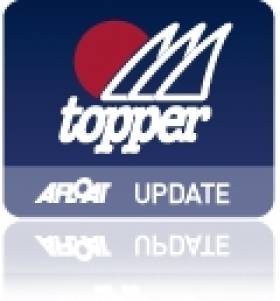Displaying items by tag: Topper Class Association
National Yacht Club to Stage 2011 Topper Worlds
The 2011 Topper World Championships will be hosted by the National Yacht Club in Dun Laoghaire.
The club beating off stiff competition from around Europe to secure this major sailing event. It follows the successful 2010 Topper Worlds held at Lake Garda last August. The news was confirmed by Bill Brassington, President, International Topper Class Association.
Over 250 of the world's top youth sailors are expected to partake in the Irish event which will run from August 15th - 19th 2011 and promises some of the closest and most exciting youth sailing ever seen on Dublin Bay.
The Topper is one of the world's most popular youth boats with over 50,000 boats around the globe. It has grown greatly in popularity in recent years because it suits the learner sailor as well as those with ambitions of Olympic medals. Because it is exceptionally light and easy to transports the National Yacht Club are expecting 150 competitors from other countries to partake.
National Yacht Club Commodore Peter Ryan commented on the announcement: "We are delighted to be hosting the Topper World Championships next August. It will follow on from the Figaro Race stop over and reflects that fact that Dublin Bay can cater for top class events for both ends of the spectrum. The Topper is an extremely popular boat with young sailors and a great gateway to sailing so we will be putting all the club resources into making the event an outstanding success."
The Topper was designed by Ian Proctor whose other boats include the ever popular Wayfarer. It was originally constructed in GRP but this was changed quite early on to an injection moulding construction. After well over 20 years of continuous production it is the outstanding build quality, durability and innovative design features that have made the Topper a very popular boat. The Topper hull is injection moulded with incredible precision, reaching a level of uniformity quite outside the scope of any other production system, either hand built or mass produced in GRP or roto-moulded plastic. The material is polypropylene which has proved to combine strength and flexibility with lightness and virtually everlasting life.






























































